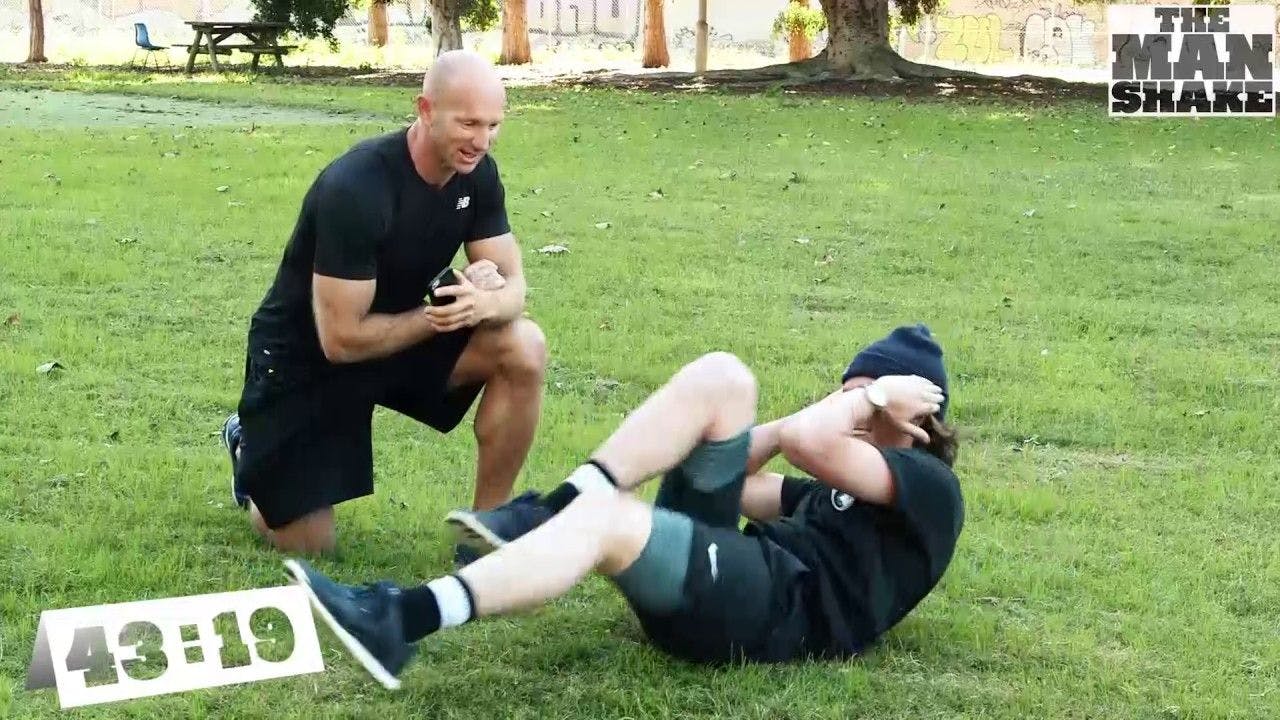How To Recover From A Bad Workout
•Fitness

Share
Have you ever had one of those days where your body just doesn’t feel right during a workout?
You know the feeling. Your muscles ache more than the heart of a NSW fan after their eighth consecutive Origin series loss, and you simply can’t muster the strength to do one more rep at the gym, even though your programme demands another three.
Don’t stress, though. It’s a common phenomenon, and there are plenty of things you can do to ensure that your exercise regime isn’t thrown into disarray.
Relax And Don’t Beat Yourself Up
First things first. Give yourself a break. If you’re on this site, chances are you were less-than-healthy at some point, so if you’re already going to the gym or regularly attempting to run, you’ve already taken one of the biggest steps towards a better lifestyle.
Exercise is a form of stress, and a poor workout is often a sign that you lack the energy to recover from said stress. You don’t want to put any more stress on an already fatigued body, so step away from the weights (or the treadmill) and take some time out to recover.
Even better, take some time to reflect on your fitness journey and admire your progress (we’re sure you’ve already made some).
Look At What You're Eating
If you’re feeling overly tired during your workout, there’s a chance you may not be putting the right fuel into your body. While you can perform low-intensity activities like walking and leisurely bike rides, without the good stuff in your body, it’s a completely different story for high-intensity activities like lifting weights or running.
High-intensity activities burn stored carbohydrates called glycogen, and if your glycogen reserves run low, you won’t be able to continue exercising.
If you intend to work out more than three hours after a meal, it’s recommended that you have a small snack (like a Man Bar), containing both protein and carbs, about an hour or so before you start.
That’s only half the story though. To ensure you’re powering on all cylinders while exercising, ensure all your meals contain healthy proteins, carbohydrates, and fats.
Sleep
We sound like a broken record here because we say it a lot, but adults need at least seven to nine hours of sleep per night.
Anyone who reads our blog regularly knows that poor sleeping habits can lead to weight gain, but it can also lead to poor results at the gym, as you will ultimately be too exhausted to perform at your best.
Poor sleep will also hamper your recovery, so make sure you put yourself in the best position to catch those Zs.
Make Sure You’re Recovering Properly
Another reason you could prematurely be running out of energy during a workout is because you’re exercising too often. It’s vital that you give your body enough time to recover between each workout.
The amount of time you need to recover will depend on your regime and your fitness level, while there is also a stack of different activities you could do to help with your recovery.
Recovery activities include using a foam roller, stretching, walking and light yoga.
Stress Less
Once again, this is easier said than done, but it’s important. Sometimes you’ll just have too much going on in your head to give your best during a workout.
If you think stress may be playing a role in your fatigue, step away from the gym and practice some relaxation techniques like deep breathing, a brisk walk, a stretch or even a nap.
Taking time out to relax will reduce your risk of injury and mitigate burnout, so you’ll be ready and roaring to go the next time you get back in the gym.





